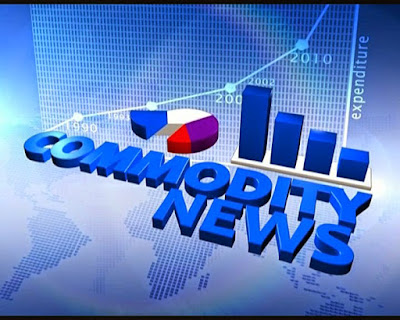ALUMINIUM:
China Aluminum International Trading Co.
(Chalco Trading) raised
aluminum prices in major markets today after cutting prices for seven
days in a row, it said on its WeChat.
Global
aluminium demand likely to
increase 4-5 percent from 3-4 percent earlier view. Norsk Hydro also
estimated that the higher-than-expected activity in China alone will see a
growth of 5-7 percent in 2016.
One of
the world's largest aluminium producers, Norsk Hydro has raised its 2016 forecast for
aluminium global demand.
LEAD:
a report from the Business Standard,
lead for August delivery
at the Multi-Commodity Exchange also grew by nearly .25%.
The latest data reported by the
International Lead and Zinc Supply Group (ILZSG) indicate the world refined
lead metal supply exceeded demand by 23,000 metric tons during the first four
months of 2016. Reductions in Australia, China, India and the U.S. led the fall
in global lead mine production of 5% compared with the first four months of
2015.”
ECB:
European
Central Bank (ECB) left key interest rates unchanged
The ECB held rates at record lows as it
seeks to revive growth and inflation with cheap credit to the economy. It added
that it still expects its key interest rates to remain at present or lower
levels for an extended period.
ECB President Mario Draghi told a
post-meeting news conference that the Eurozone’s central bank was prepared to
take more action to lift inflation and economic growth if necessary.
FOMC decision due next week traders are a
bit cautious but odds are that the Fed will do nothing at all taking cues from the BoE and the ECB.
OIL:
Saudi Energy Minister Khaled al-Falih said
that crude prices of $50 per barrel were not enough to sustain investment in
the global oil sector, adding that a fair price would be somewhere between
$50-$100.
Saudi Arabia will likely to maintain its current strategy
of retaining, or even
increasing market share, by sustaining, or boosting oil production.
OPEC’s latest estimates showed that Saudi Arabia produced 10.308
million barrels per day of oil in June compared to 10.242 million barrels per
day in May. The total OPEC
oil production in June increased by 264,100 barrels per day to average
32.858 million barrels per day.
Iraq's oil exports are
set to rise in July, according to loading data and an industry source, putting
supply growth from OPEC's second-largest producer back on track after two
months of declines.
Iraq in 2015 provided OPEC's biggest rise in supply. The growth
has slowed this year due to maintenance and technical problems, and Iraqi
officials say seasonally higher domestic use has curbed volumes available for
export.
Exports from southern
Iraq in the first 21 days of July have averaged 3.28 million barrels per day
(bpd), according to loading data tracked by Reuters and an industry
source. That would be up
from 3.18 million bpd in June.
 CAPITALSTARS
CAPITALSTARS
 CAPITALSTARS
CAPITALSTARS





Click here for comments 0 comments: